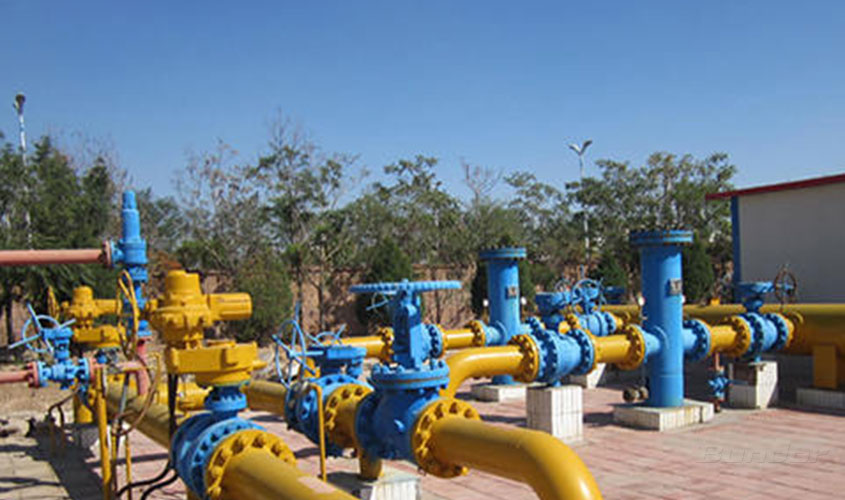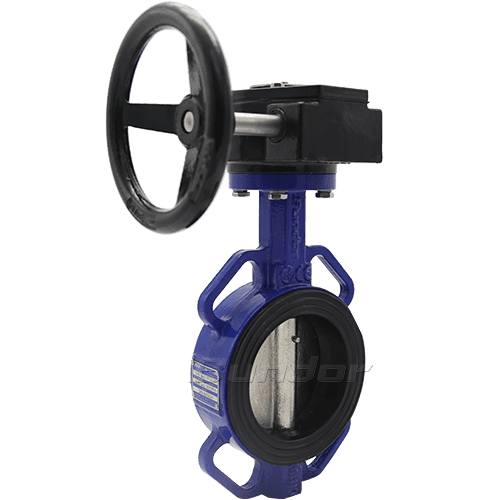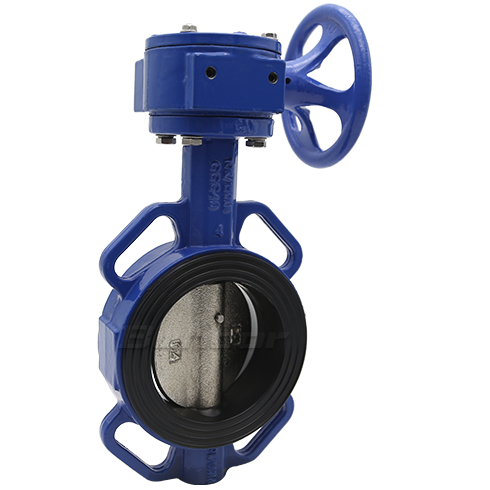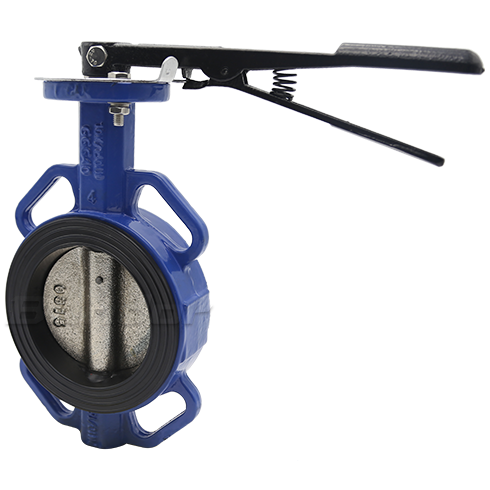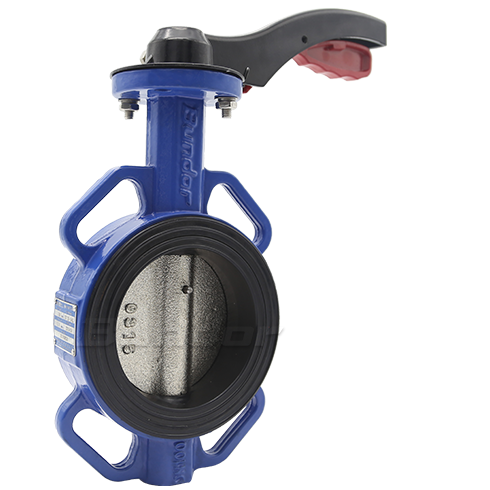The butterfly valve is suitable for flow regulation. Since the pressure loss of the butterfly valve in the pipeline is about three times that of the gate valve, when selecting the butterfly valve, the influence of the pressure loss of the pipeline system should be fully considered, and the robustness of the pressure of the butterfly medium to the pipeline during closing should also be considered.
In addition, the limits of the operating temperature of the elastomeric seat material at elevated temperatures must also be considered. The butterfly valve has a small structural length and overall height. It has a fast opening and closing speed and good fluid control characteristics. The structural principle of the butterfly valve determines that it is most suitable for making large diameter valves. When a butterfly valve is required for control flow, the most important thing is to properly select the size and type of butterfly valve so that it can work properly and efficiently.
Generally, in throttling, regulating and controlling mud media, we require a short structural length and a fast opening and closing speed (1/4 turn). When the working condition requires low pressure cutoff (small pressure difference), butterfly valve is recommended.
A butterfly valve can be used in a two-position adjustment, a narrowing passage, a low noise, a cavitation and gasification, and a small amount of leakage into the atmosphere, and an abrasive medium.
In the case of throttling adjustment under special working conditions, or requiring strict sealing, or severe wear, low temperature (deep cooling) and other conditions, we need to use a special special design metal sealing belt adjustment device to triple eccentric or double Eccentric butterfly valve.
Concentric butterfly valves are suitable for fresh water, sewage, seawater, salt water, steam, natural gas, food, medicine, oil and each requiring complete sealing, zero gas test leakage, high life expectancy, and operating temperature between -10 °C and 150 °C. Kinds of acid and alkali and other pipelines.
The soft-sealed eccentric butterfly valve is suitable for two-way opening and closing and regulation of ventilation and dust removal pipelines. It is widely used in gas pipelines and waterways of metallurgy, light industry, electric power and petrochemical systems.
The metal-to-metal wire sealed double eccentric butterfly valve is suitable for gas, oil, acid and alkali pipelines such as urban heating, gas supply, water supply, etc. It can be used as a regulating and throttling device.
Metal-to-metal surface sealing triple eccentric butterfly valve can be widely used in petroleum, petrochemical, chemical, metallurgical, electric power and other fields in addition to being used as a large-scale pressure swing adsorption (PSA) gas separation device program control valve. It is a good alternative to gate valves and globe valves.
The principle of butterfly valve selection:
1. Since the butterfly valve has a relatively large pressure loss relative to the gate valve and the ball valve, it is suitable for use in a piping system where pressure loss is not critical.
2. Since the butterfly valve can be used as a flow regulation, it is suitable for use in piping that requires flow regulation.
3. Due to the structure of the butterfly valve and the limitation of the sealing material, it is not suitable for high temperature and high pressure piping systems. Its general operating temperature is below 300 °C and the nominal pressure is below PN40.
4. Since the butterfly valve has a relatively short structure length and can be made into a large diameter, a butterfly valve should be used in the case where the structural length requirement is short or a large-mouth valve (such as DN1000 or higher).
5. Since the butterfly valve can be opened or closed only by rotating 90 degrees, the butterfly valve should be used when the opening and closing requirements are fast.


